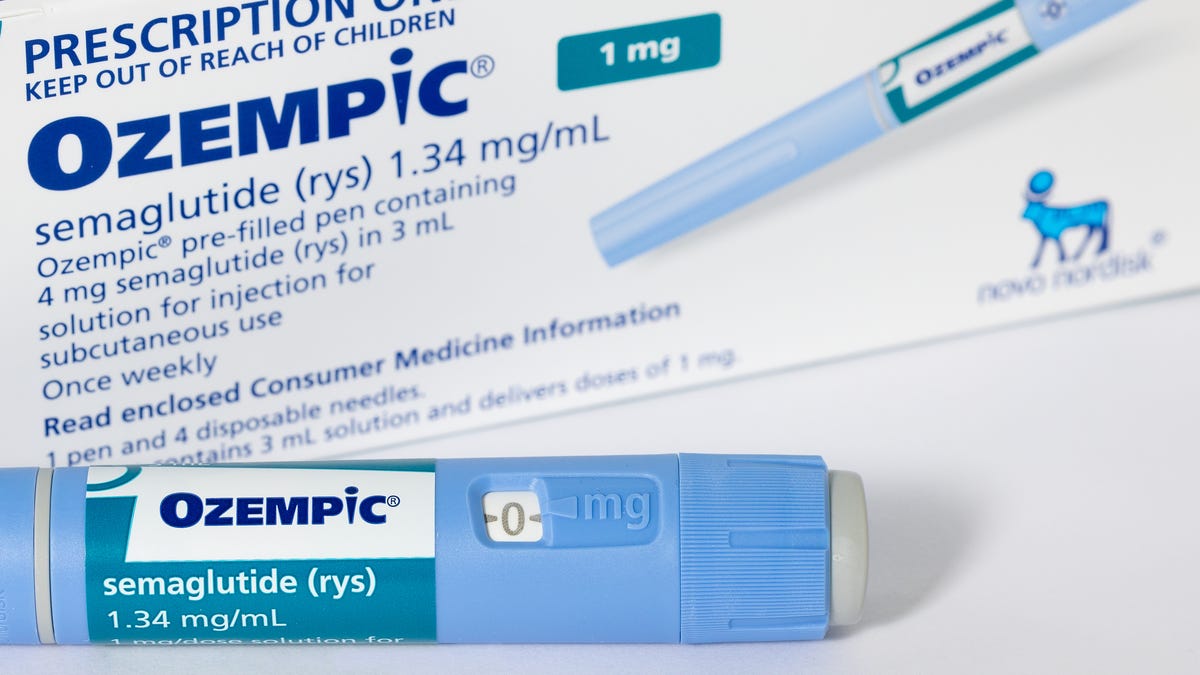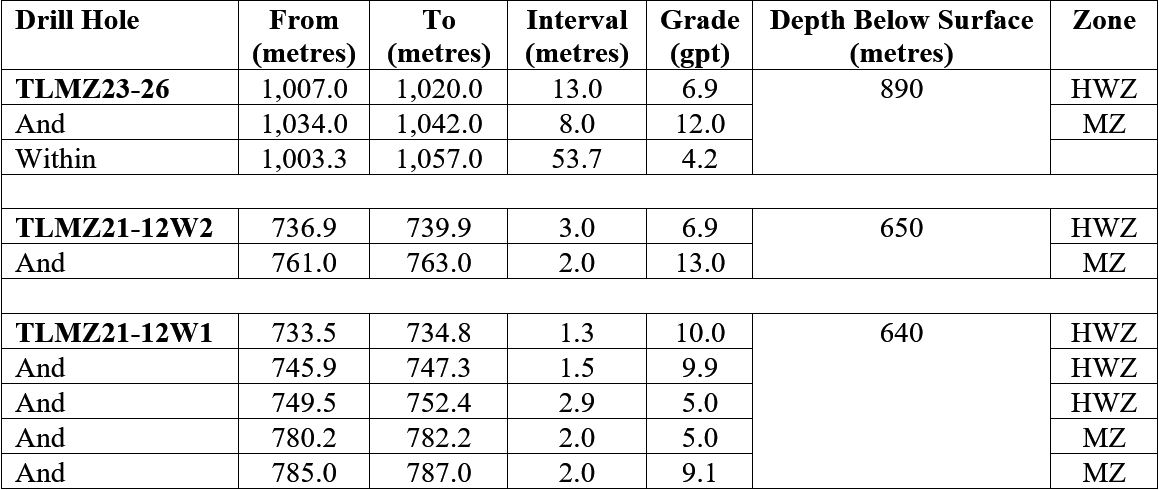Ozempic For Everyone? Exploring GLP-1 Drugs And Their Expanding Use

Table of Contents
Understanding GLP-1 Drugs and Their Mechanism of Action
What are GLP-1 Receptor Agonists?
GLP-1, or glucagon-like peptide-1, is a naturally occurring hormone in the body that plays a crucial role in regulating blood sugar levels. After eating, GLP-1 is released, triggering several important actions: it increases insulin release when blood glucose is high, decreases the release of glucagon (a hormone that raises blood sugar), slows gastric emptying (making you feel full longer), and enhances satiety – the feeling of fullness. GLP-1 receptor agonists are medications that mimic the action of GLP-1, amplifying these beneficial effects.
- Increase insulin release in response to glucose: This helps to lower blood sugar levels, particularly important for individuals with type 2 diabetes.
- Decrease glucagon secretion: This prevents the liver from releasing excess glucose into the bloodstream.
- Slow gastric emptying: This leads to prolonged feelings of fullness and reduced appetite, contributing to weight loss.
- Enhance satiety (feeling of fullness): This is a key mechanism by which GLP-1 receptor agonists promote weight management.
These combined actions make GLP-1 receptor agonists effective for both managing type 2 diabetes and promoting weight loss. The weight loss mechanism, primarily through appetite suppression and improved satiety, is a significant benefit for many.
Ozempic and Other GLP-1 Drugs: Approved Indications and Uses
Approved Use in Type 2 Diabetes
GLP-1 drugs have been established as a key component in the management of type 2 diabetes for many years. They are often used in conjunction with other diabetes medications, like metformin, to improve glycemic control (blood sugar regulation). Different dosages and formulations are available, tailored to individual patient needs and response. The efficacy of GLP-1 drugs in lowering HbA1c (a measure of long-term blood sugar control) is well documented.
Approved Use in Obesity/Weight Management
Beyond their use in diabetes management, several GLP-1 drugs, most notably Wegovy (semaglutide), have received FDA approval for chronic weight management in adults with a BMI of 30 or greater (obese) or 27 or greater (overweight) with at least one weight-related condition like high blood pressure or high cholesterol. Eligibility criteria typically involve a discussion with a healthcare professional to assess individual risk factors and suitability.
- Specific GLP-1 drugs: Ozempic (semaglutide), Wegovy (semaglutide), Mounjaro (tirzepatide), Saxenda (liraglutide) are examples of commonly used GLP-1 receptor agonists. Note that Wegovy and Ozempic utilize the same active ingredient (semaglutide) but have different dosages and approval indications (weight loss vs diabetes).
- Dosage differences and administration methods: Dosages vary depending on the specific drug and the individual's needs. They are usually administered via weekly injections.
- Differences in approved indications: It's crucial to understand that while many GLP-1 drugs can aid in weight loss, only specific formulations, such as Wegovy, are explicitly approved for this purpose.
Potential Benefits and Side Effects of GLP-1 Receptor Agonists
Benefits Beyond Weight Loss
While weight loss is a prominent benefit, GLP-1 receptor agonists offer additional advantages:
- Cardiovascular benefits: Studies suggest potential benefits in reducing cardiovascular events in some patients with type 2 diabetes.
- Improved glycemic control: Effective in lowering blood sugar levels, reducing the risk of diabetes-related complications.
Potential Side Effects
Like all medications, GLP-1 receptor agonists can cause side effects, which vary in severity.
- Common side effects: Nausea, vomiting, diarrhea, constipation are common, often mild and temporary.
- More serious side effects: Pancreatitis (inflammation of the pancreas), although rare, is a serious potential side effect. Gallstones have also been reported.
- Long-term effects: Long-term studies are ongoing to fully understand the potential long-term effects.
- Contraindications and drug interactions: These medications may not be suitable for everyone. People with a history of pancreatitis or certain medical conditions should discuss the risks with their doctor.
Who is a Suitable Candidate for GLP-1 Drugs?
Assessing Individual Needs
Determining suitability for GLP-1 drugs involves a comprehensive assessment:
- BMI: A high BMI is often a factor, especially for weight management indications.
- Diabetes diagnosis: For diabetes management, a proper diagnosis is essential.
- Cardiovascular risk: Existing heart conditions may influence treatment decisions.
- Other health conditions: Pre-existing conditions can affect suitability.
The Importance of Medical Consultation
It is crucial to emphasize that GLP-1 drugs are not a miracle cure and should only be used under the guidance of a healthcare professional. Self-medicating is dangerous.
- Factors considered for eligibility: A physician will evaluate various health factors to determine if GLP-1 therapy is appropriate.
- Individual assessment and tailored treatment plans: Treatment plans are customized based on the patient's specific needs and overall health profile.
Conclusion:
GLP-1 drugs like Ozempic and Wegovy offer significant potential for weight management and diabetes control through their impact on appetite, insulin secretion, and glucagon regulation. They can lead to considerable weight loss and improved blood sugar control. However, potential side effects, such as nausea and pancreatitis (though rare), must be considered. Importantly, these medications are not a one-size-fits-all solution and require careful medical supervision. Eligibility depends on individual factors, and a comprehensive assessment by a healthcare provider is essential before starting treatment. If you're considering GLP-1 drugs for weight loss or diabetes management, consult with your healthcare provider to determine if they are the right option for you. Don't self-prescribe; discuss the benefits and risks of Ozempic and other GLP-1 drugs with a qualified medical professional.

Featured Posts
-
 Kanye Wests Control Over Bianca Censori Growing Concerns
May 28, 2025
Kanye Wests Control Over Bianca Censori Growing Concerns
May 28, 2025 -
 Should You Take Ozempic A Guide To Glp 1 Receptor Agonists
May 28, 2025
Should You Take Ozempic A Guide To Glp 1 Receptor Agonists
May 28, 2025 -
 One Piece The Loyalty Question Crew Hopping In The Grand Line
May 28, 2025
One Piece The Loyalty Question Crew Hopping In The Grand Line
May 28, 2025 -
 Palisades Fire A List Of Celebrities Affected By Home Losses
May 28, 2025
Palisades Fire A List Of Celebrities Affected By Home Losses
May 28, 2025 -
 Hailee Steinfeld Opens Up About Emotional Josh Allen Engagement
May 28, 2025
Hailee Steinfeld Opens Up About Emotional Josh Allen Engagement
May 28, 2025
Latest Posts
-
 Manitoba Invests In Advanced Care Paramedics For Rural And Northern Communities
May 30, 2025
Manitoba Invests In Advanced Care Paramedics For Rural And Northern Communities
May 30, 2025 -
 Province Expands Advanced Care Paramedic Services In Rural And Northern Manitoba
May 30, 2025
Province Expands Advanced Care Paramedic Services In Rural And Northern Manitoba
May 30, 2025 -
 Joy Smith Foundation Launches Press Release And Photo Advisory
May 30, 2025
Joy Smith Foundation Launches Press Release And Photo Advisory
May 30, 2025 -
 Canadian Gold Corps Tartan Mine Ni 43 101 Resource Update And Pea Funded By 300 000 Mmdf Grant
May 30, 2025
Canadian Gold Corps Tartan Mine Ni 43 101 Resource Update And Pea Funded By 300 000 Mmdf Grant
May 30, 2025 -
 Tartan Mine Project Receives 300 000 Boost From Mmdf For Resource Update And Pea
May 30, 2025
Tartan Mine Project Receives 300 000 Boost From Mmdf For Resource Update And Pea
May 30, 2025
